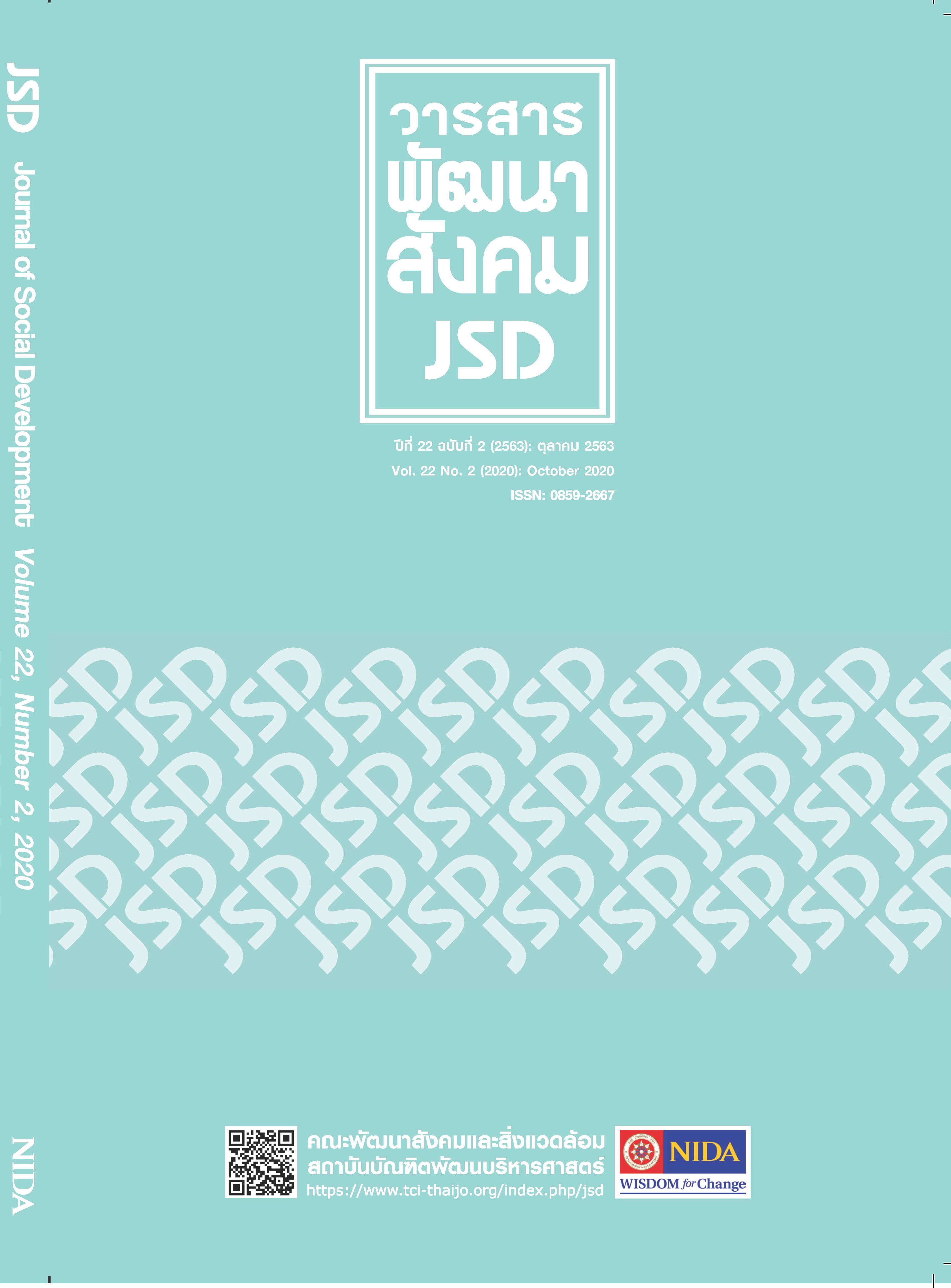Social Capital and Economic Strength of Chinatown Community
Main Article Content
Abstract
This article is part of a research on social capital and economic strength of Chinatown community. The objectives of this study were 1) to study the status of social capital that affects the economic strength in Chinatown community, 2) to study the composition of the social capital that strengthens the economy in Chinatown community, and 3) to study the method of applying social capital used to strengthen the economy in Chinatown community. This study was based on the qualitative research approach. The data were collected from documents and in-depth interviews with 15 key informants.
The results of this research revealed that the social capital status that affects the economic strength in the Chinatown community are the Norm dimension, by complying with regulations to preserve the culture and traditions of the community; the Trust dimension is a commercial credit partners are honest with one another and trust each other; Network dimension can be seen from the group activities together resulting in strength of the community. By using components of social capital in the Chinatown community, such as the kinship system culture and traditions, values, and knowledge of wisdom are factors that contribute to economic strength. As for the methods of using social capital to strengthen the economy in the community at the family level, the research found that the children are taught to comply with regulations. Have morality, ethics, trust, transfer of knowledge and wisdom for self-reliance; At the community level, the research found that community leaders are trusted by community members creating network norms to help improve the community; and at the group/ organization level, there is integration on trust and it is a social network under the same norm rules.
Article Details
References
Budduang, A. (2011). Ability to bring social capital to Ban Bang Phra Community Bang Khonthi District Samut Songkhram Province (In Thai). Master degree thesis Social Development Administration Program. National Institute of Development Administration.
Chaiamphon, S. (2016). Social Quality: Concept, Dynamics, Changes and Thai Development (In Thai). Bangkok: National Institute of Development Administration.
Chantavanich, S. (2007). Assessing the Situation of the Worst Forms of Child Labour in Samutsakhon.1st ed (In Thai). Bangkok: Asian Research Center for Migration, Institute of Asian Studies, Chulalongkorn University.
Kaewmuang, D. et al. (1999). China : People & Culture in the South (In Thai). Encyclopedia of Thai Culture in the North 4.
Keeratinawanun, S. (2016). The Factors of the Strengthen Chinese Community (In Thai). Academic Journal Uttaradit Rajabhat University 11(2): 370.
Khamman, S. et al. (2008). Social capital & human capital development (In Thai). Office of the National Economic and Social Development Board, co-organized by the Chaipattana Foundation, Office of the National Economic & Social Development Board, and Thailand Development Research Institute, 29-30 November 2008, at the Ambassador City Hotel Jomtien, Chonburi.
Kongprakob, N. (2017). Background & identity of the 5 Chinese language groups in Thailand (In Thai). Retrieved March 5, 2017 from http://nsnstudies.nsru.ac.th/?p=130.
Romerattanaphan, W. (2005). Social Capital (In Thai). Bangkok: A project to promote learning for a happy community.
Sinthunava, P. (2006). The Network Construction Process Social Development & Social Welfare Work (In Thai). Bureau of Social Development & Human Security Standards: Bangkok.
Skinner, G. William. (1997). Chinese Society in Thailand: An Analytical History. New York: Cornell University.
Srisuwankan, S. & Nitithanprapra, I. (2003). Economic Strength (In Thai). Journal of Economic & Social Affairs, 40(3), 23.
Srisuwankan, S. (2005). The economy is good or bad ...... How to actually look (In Thai). Journal of Economic and Social Studies, 42(4), 25-26.


